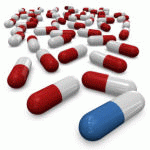Pharmacology
|
30 january 2023 14:22:39 |
| Pharmaceuticals, Vol. 16, Pages 210: The Use of Triphenyl Phosphonium Cation Enhances the Mitochondrial Antiplatelet Effect of the Compound Magnolol (Pharmaceuticals) |
|
Tweet Although platelets are anucleated cells, they have fully functional mitochondria, and currently, it is known that several processes that occur in the platelet require the action of mitochondria. There are plenty of mitochondrial-targeted compounds described in the literature related to cancer, however, only a small number of studies have approached their interaction with platelet mitochondria and/or their effects on platelet activity. Recent studies have shown that magnolia extract and mitochondria-targeted magnolol can inhibit mitochondrial respiration and cell proliferation in melanoma and oral cancer cells, respectively, and they can also induce ROS and mitophagy. In this study, the effect of triphenylphosphonium cation, linked by alkyl chains of different lengths, to the organic compound magnolol on human-washed platelets was evaluated. We demonstrated that the addition of triphenylphosphonium by a four-carbon linker to magnolol (MGN4) considerably enhanced the Magnolol antiplatelet effect by a 3-fold decrease in the IC50. Additionally, platelets exposed to MGN4 5 µM showed several differences from the control including increased basal respiration, collagen-induced respiration, ATP-independent respiration, and reduced ATP-dependent respiration and non-mitochondrial respiration. |
| 93 viewsCategory: Medicine, Pharmacology |
 Pharmaceuticals, Vol. 16, Pages 208: Biologically Potent Benzimidazole-Based-Substituted Benzaldehyde Derivatives as Potent Inhibitors for Alzheimer’s Disease along with Molecular Docking Study (Pharmaceuticals) Pharmaceuticals, Vol. 16, Pages 208: Biologically Potent Benzimidazole-Based-Substituted Benzaldehyde Derivatives as Potent Inhibitors for Alzheimer’s Disease along with Molecular Docking Study (Pharmaceuticals)Pharmaceuticals, Vol. 16, Pages 211: Bio-Oriented Synthesis and Molecular Docking Studies of 1,2,4-Triazole Based Derivatives as Potential Anti-Cancer Agents against HepG2 Cell Line (Pharmaceuticals) 
|
| blog comments powered by Disqus |
MyJournals.org
The latest issues of all your favorite science journals on one page
The latest issues of all your favorite science journals on one page



